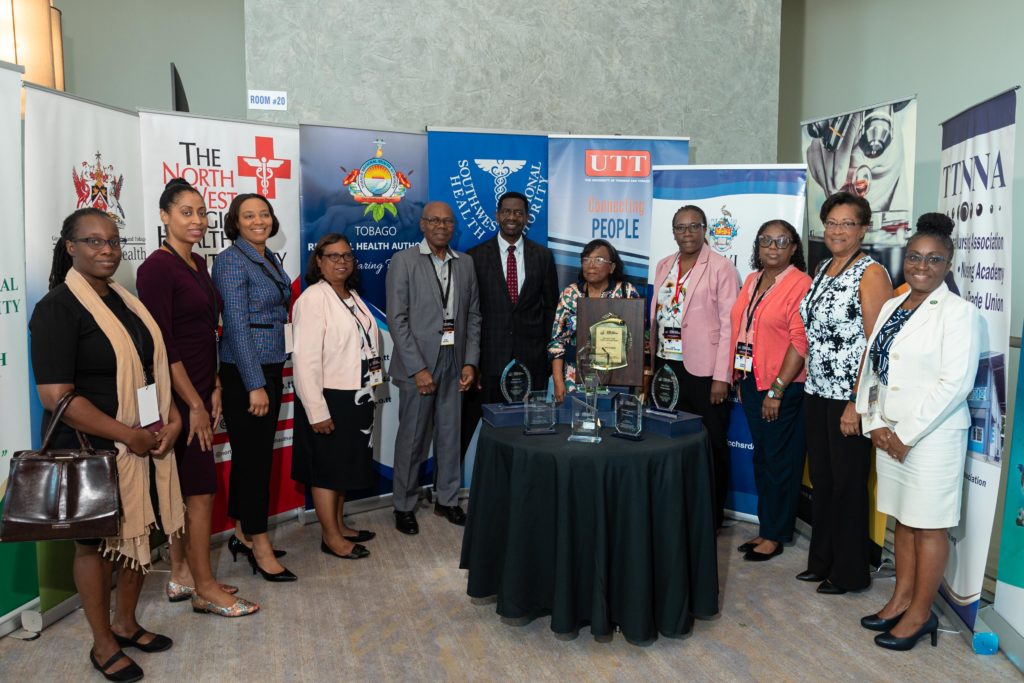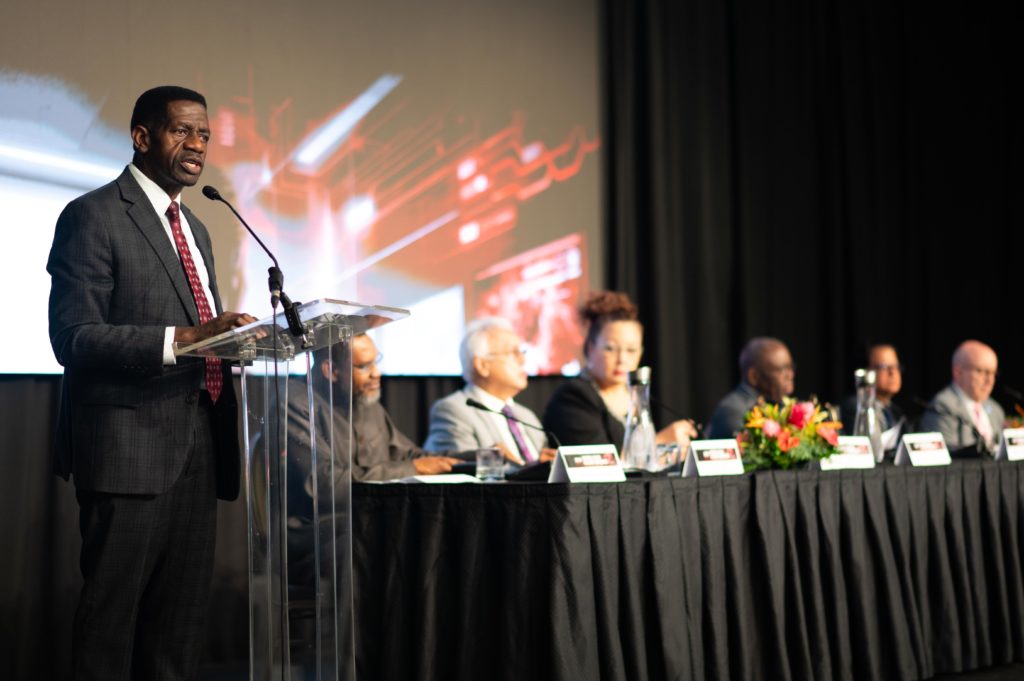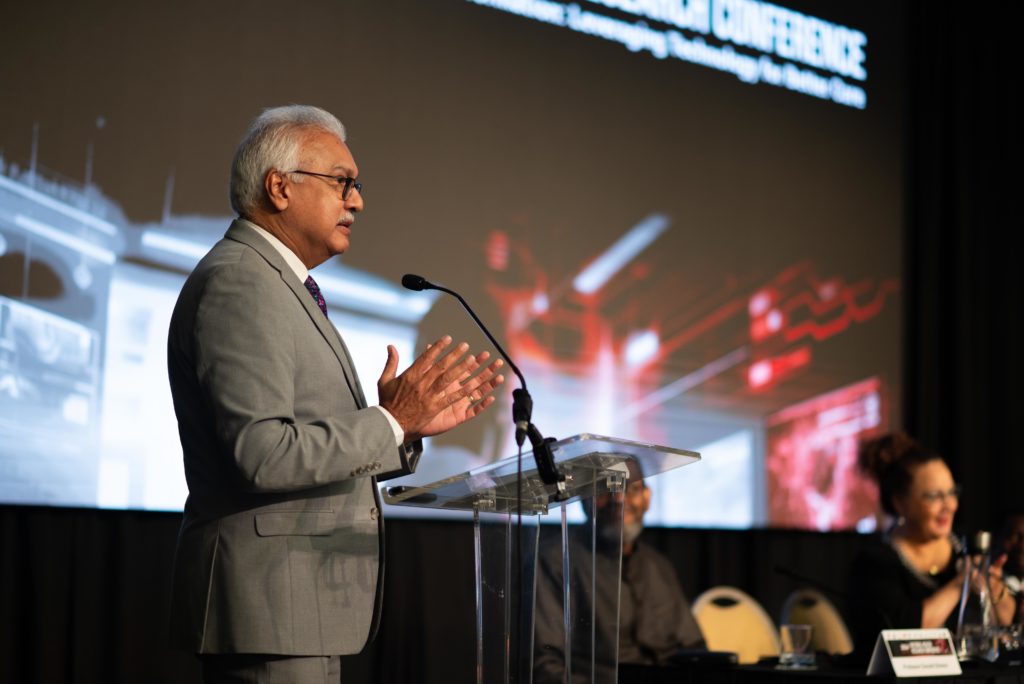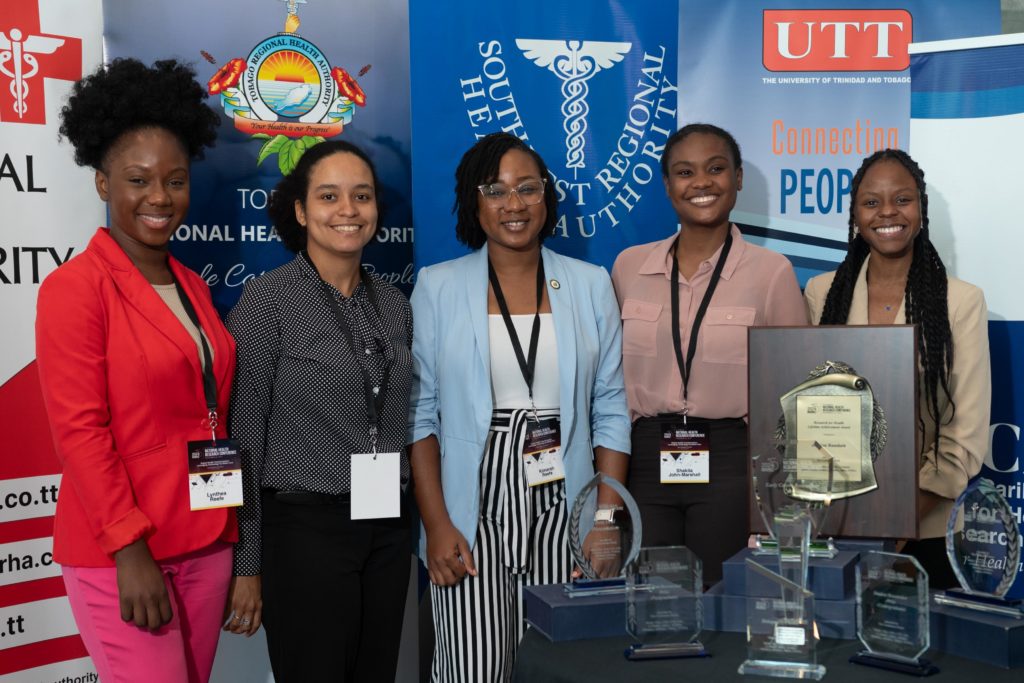By Ms. Simone Augustus, Communications Specialist, Office of the President
The University of the Southern Caribbean (USC) continues its role as a distinguished partner in the Trinidad and Tobago National Health Research Conference (NHRC), an influential platform now in its fifth year of spotlighting health innovation and knowledge exchange. The event, held on Friday, November 22, 2024, at the Hyatt Regency in Port of Spain, Trinidad, brought together health professionals, researchers, and thought leaders from across the region to explore groundbreaking advancements under the theme, “Digital Health Transformation: Leveraging Technology for Better Care.”

Joining USC as partners are some of the nation’s most impactful health and educational organizations, including the Ministry of Health of Trinidad and Tobago, the Tobago House of Assembly, the Faculty of Medical Sciences and Caribbean Centre for Health Systems Research and Development at the University of the West Indies, the University of Trinidad and Tobago, Trinidad and Tobago’s regional health authorities, and the Trinidad and Tobago National Nursing Association. Together, these organizations represent a collaborative force in the Caribbean, dedicated to advancing health research and transforming the region’s healthcare landscape.
This year’s theme underscores a pivotal shift: the integration of digital health technologies to enhance patient care and healthcare systems. As technology rapidly advances, its potential to improve healthcare delivery, streamline diagnostics, and empower patients is a focal point. The conference will highlight how digital tools and innovations are redefining healthcare, a discussion more pressing than ever in our interconnected world.
USC President Dr. Colwick M. Wilson delivered opening remarks, emphasizing USC’s commitment to education, research, and healthcare innovation. “The organizers and partners of this significant event must be commended for creating a space where collaboration, innovation, and contextually driven research intersect to transform healthcare across Trinidad and Tobago and beyond,” Dr. Wilson remarked. Highlighting the university’s healthcare contributions, he added, “For nearly a century, USC has embraced a holistic approach to education that focuses on the development of the head—how we think, the heart—how we feel, and the hand—what we do. Our nursing program stands as a testament to this legacy, producing professionals who provide compassionate, world-class care.”

Mr. Marcelo D’Agostino, Chief of Information Systems and Digital Health at the Pan-American Health Organization (PAHO), delivered a compelling presentation that contextualized the conference theme. He reflected on the challenges and opportunities in digital health, emphasizing the importance of regional collaboration. “We need to embrace technologies, not just as tools but as part of a holistic approach to transforming healthcare. It is critical to ensure that digital transformation is not just about technology but about improving health outcomes for everyone,” said Mr. D’Agostino.

Mr. D’Agostino also highlighted the Pan-American Highway for Digital Health, a vision for creating a public digital health infrastructure that ensures cross-border interoperability and data security. “This initiative represents a significant step forward, enabling countries to share data securely and improve health outcomes across the Americas,” he noted.
The keynote address was delivered by Hon. Terrence Deyalsingh, Trinidad and Tobago’s Minister of Health, who underscored the pivotal role of digital transformation in healthcare. Reflecting on the country’s progress, he shared, “We have started the transition from paper-heavy to paper-light and, ultimately, to paperless systems. This is not change for the sake of change—it must benefit our healthcare providers and, most importantly, our patients.” He also highlighted the importance of equity in digital health, noting, “COVID-19 exposed significant health inequities globally. We must ensure that our technological advancements lead to increased patient care and health equity.”

USC demonstrated strong representation at the conference, with students, administrators, faculty, and staff in attendance. Final-year BS Nursing students and 2024 graduates of the MS Occupational Therapy (MSOT) program were among the participants, contributing significantly by presenting their research.

USC faculty members and alumni showcased their scholarship through impactful poster presentations:
- “Climate Change and its Effect on the Mental Health of Farmers in Trinidad & Tobago” by Sadia Moore, Glenda M. Hinkson, and Edward T. Clarke.
- “Telehealth Beliefs, Expectations, and Curriculum Readiness: Perspectives of Tertiary Nursing Students in Trinidad and Tobago” by Lydia G. Campbell-George, Issa Craigwell, Christal Lewis, Davian Sanchez, Kristy Marie Wafe, Tinneal Borrel, and Debra Ramkissoon.
- “An Investigation of the Impact of La Soufrière Eruption on the Lives of Vincentians” by Claudette Mitchell, David Balfour, Lydia Campbell-George, Wanda Chesney, and Edward Clarke.
USC’s contributions to the NHRC extend beyond the conference itself, with faculty and staff playing vital roles in its planning and execution. Dr. Lydia Campbell-George, Dr. Susan Chand, and Dr. Dave V. Cassie actively participated in the Inter-Institutional Planning Committee, ensuring the conference’s success.
As the NHRC celebrated its fifth year, Dr. Wilson called for continued investment in health research and innovation. “Let us build on this momentum to further cultivate and value a national health research culture with lasting, far-reaching impact. Together, we can create a modernized system in which healthcare is not only efficient and equitable but truly transformational,” he urged.
As digital health innovations continue to evolve, USC looks forward to ongoing collaboration with NHRC and its partners, advancing USC’s mission to foster well-being and strengthen healthcare throughout the Caribbean.
